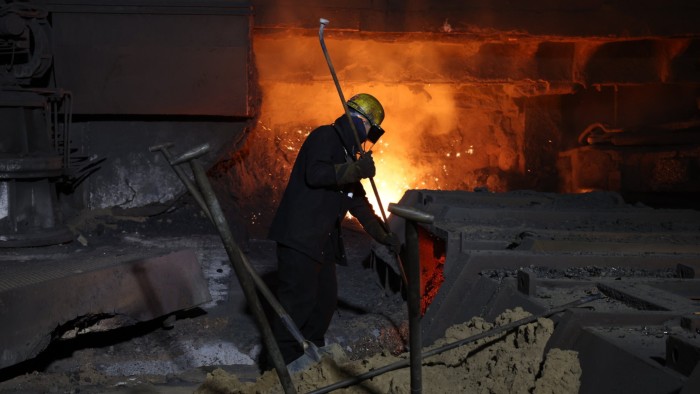Unlock the Editor’s Digest for free
Roula Khalaf, Editor of the FT, selects her favourite stories in this weekly newsletter.
The Chinese owner of British Steel has called on the UK government to “respect and protect” its rights as a foreign investor after ministers dramatically seized control of the company over the weekend.
Jingye, which has owned the British steelmaker since 2020, also defended its ownership of the company, saying it had safeguarded more than 4,800 jobs over the past five years despite challenges such as Brexit.
In its first public comments on the saga, Zengwei An, chief executive of Jingye British Steel, issued a statement to the Financial Times in which the company expressed its “understanding” for the emergency law passed by the government.
Jingye UK said it would engage in “active communication” to “seek a proper solution that ensures a bright future for British Steel”.
The company, however, “request[s] that the UK government respect and protect the legitimate rights and interests of Jingye as a foreign investor throughout this process”, according to the statement.
Jingye’s intervention came after UK business secretary Jonathan Reynolds appeared to announce at the weekend that Chinese companies were no longer welcome in Britain’s steel industry.
Asked on Sunday whether he would bring a Chinese company into the British steel industry in future, Reynolds told Sky News: “I wouldn’t, no. I think steel is a very sensitive area.” The British government had in the past been “far too naive” about UK-Chinese trade, he added.
The business secretary also alleged that “any major Chinese industrial company” had “direct links to the Chinese Communist party”, but added that he was “not accusing the Chinese state of being directly behind” Jingye’s actions regarding British Steel.
On Monday, Downing Street said the UK government would take a “consistent, long-term strategic approach to managing relations” with Beijing, but would not rule out allowing a Chinese buyer to take over domestic steel assets in future. The UK prime minister’s spokesperson said they were “not going to get ahead of any potential future commercial negotiations”.
Jingye bought British Steel out of insolvency in March 2020, pledging to invest £1.2bn into the steelmaker. Protracted talks with the UK government over taxpayer support to help it move to greener forms of production collapsed last week, however.
Jingye rejected a £500mn offer from ministers to invest in greener technology after seeking as much as £1bn for the £2bn project to build two electric arc furnaces at its main site in Scunthorpe.
The government said it stepped in after ministers became aware that Jingye was intent on allowing its blast furnaces, the last two in the UK, to close down. The closure would have left the UK as the only G20 country without the ability to make primary steel.
Although Reynolds has said finding a third-party buyer is the government’s preferred option, he has conceded that nationalisation is likely.
Ministers have been working with the British managers at the company to secure the necessary raw materials to keep the furnaces operating. The government on Monday approved the appointment by British Steel of two of its long-term employees as interim chief executive and chief commercial officer.
Jingye said in its statement that over the past five years it had “stayed unwavering” in its commitment to improving the operation and sustainable development of British Steel.
The company, it added, had made “crucial project investments to ensure British Steel’s normal production and operation”, despite challenges such as Brexit and the Covid-19 pandemic.
“We have safeguarded over 4,800 jobs and provided high-quality products and services to domestic and international customers, thus contributing to the economic growth of local communities. This is a fact evident to all,” said Jingye.


